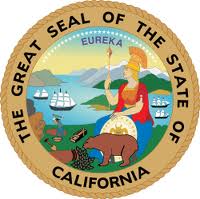 Cross-posted at WLF’s Forbes.com contributor site
Cross-posted at WLF’s Forbes.com contributor site
Can you hear me now?
It’s difficult to hear any meaningful information amongst the government mandated noise in California. Several innocuous products now sport the ubiquitous Prop 65 warnings–which indicate that the product contains materials the state alleges are linked to cancer. And should Prop 37 pass in November, genetically modified foods will have to be labeled as such, despite consensus among leading scientific organizations (such as the Food and Drug Administration and the World Health Organization) that genetically modified foods are perfectly safe for consumption.
Recently, the city of San Francisco endeavored to add to this noise, by enacting an ordinance that would mandate disclosures on the purported risk of cancer associated with cell phone emissions. In CTIA-The Wireless Association v. City of San Francisco, however, the Ninth Circuit affirmed the lower court’s decision that the mandated disclosures themselves were “misleading and controversial,” and thus violated cellular retailers’ First Amendment rights.
Because mandated disclosures implicate First Amendment concerns, the Supreme Court has ruled that any governmentally compelled speech much be “purely factual and uncontroversial.” Zauderer v. Office of Disciplinary Counsel. In CTIA, the court found that San Francisco’s compelled speech, including recommendations for consumers who wish to reduce their exposure to cell phone emissions, implied that the city adjudged cell phone use to be dangerous. This implication was neither factual nor uncontroversial. As the court noted, the FCC has determined what levels of radio frequency energy exposure are safe, and has concluded that cell phones are squarely within these limits. Further, the scientific community lacks consensus on the matter, and the city itself admitted that there is no evidence that cell phones cause cancer. The relation between cell phone emissions and cancer risks apparently amounts to mere conjecture, a conjecture that the government could not force businesses to disseminate.
But there’s the rub. Government compelled speech, even where factual, implies that there is a danger that must be warned of. With regard to Prop 37, the mandatory disclosures only require that genetically modified food have a label to that effect. But this label implies a hazard that the scientific community has yet to confirm the existence of. Further, we now know that the act’s regulation of the use of the term “all natural” pertains not only to genetically modified foods, but to plain old processed foods as well–which means that the purveyors of frozen or canned foods can no longer call their products “natural.” Under this rationale, frozen broccoli is not natural.
Thus, often times government compelled speech is more confusing than silence. The cautionary tale of government mandated Prop 65 precautions is similarly instructive. Prop 65 labels decorate the faces of a large assortment of products on California shelves–many of these products seemingly have no nexus to cancer. But because Prop 65 has wrought a cottage industry built around strike suits under the act’s private attorney general provisions, many companies have chosen to slap a label on their products as a precaution; not as a precaution aimed at preventing cancer, but at preventing litigation. And when these labels become ubiquitous, the precautions’ value to consumers is diluted.
However, courts seem to be looking closely at government attempts to compel speech. Just recently the D.C. Circuit struck down FDA’s proposed mandatory graphic warnings on cigarette packaging in R.J. Reynolds v. FDA, finding that the regulation would “force the manufacturer of a product to go beyond making purely factual and accurate commercial disclosures and undermine its own economic interest.” The court further noted that the government had not presented “a shred of evidence” that the warnings would reduce smoking. Hopefully this trend continues, and courts will not give commercial speech short shrift. Commercial speech rights protect one of businesses’ most important functions: the ability to contribute to public discourse by conveying information to the marketplace. Government should not be free to commandeer entities to disseminate their messages just because the speech is “commercial” in nature.
